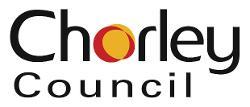Children and Young People Safeguarding Policy 2022
7. Guidelines for Use of Photographic Equipment at Organised Events Including Mobile Phone Technology and e Communications
Introduction
There is evidence that some people have used public events as an opportunity to take inappropriate photographs or film footage of children. All representatives organising events where children will be participating must remain vigilant and ensure the following guidelines are adhered to. The guidelines apply to all forms of technology that can be used to record images including mobile phones, many of which are now include digital cameras, and staff should be aware of the opportunity this affords for misuse.
In addition, when using an external venue, you need to check the venue's policy on the use of photographic equipment. For example a leisure centre may not allow the use of filming equipment in the changing rooms or swimming pool areas.
If a professional photographer, the press or representatives are invited to cover services, events, activities, the event organiser must:
- iparticipants and parents that a photographer will be in attendance and ensure they consent to both the taking and publication of films or photographs by asking them to complete a consent form. (A sample form can be found in Appendix G )
- ensure that the photographer wears their identification or is provided with identification at the event.
- ensure that the photographer has no unsupervised access to children.
- ensure that the last names of children are not used in photographs or film footage, unless with the express permission of the child or young person's parent.
Additional guidelines:
It is impossible to regulate the use of photographic equipment at open public events but the following additional procedures should be considered by the event organiser and adopted where practical to do so:
Professional photographers wishing to record the event should seek accreditation with the event organiser by producing their professional identification for the details to be recorded. Ideally they should request this at least five working days before the event.
Students or amateur photographers wishing to record the event should seek accreditation with the event organiser by producing their student club or registration card and a letter from their club / educational establishment outlining their motive for attending the event.
All other spectators wishing to use photographic equipment should register their intent with the promoter of the event.
Accreditation procedure: a record should be made of the individual's name and address and club. Professionals should register prior to the event and their identification details should be checked with the issuing authority prior to the event. On registering, promoters of events should consider issuing an identification label on the day, which can serve to highlight those who have accreditation but must ensure that where regular events occur, the identifying label is changed to prevent unofficial replication.
Public information: the specific details concerning photographic equipment should, where possible, be published prominently in event programmes and must be announced over the public address system prior to the start of the event.
The recommended wording is:
"In the interests of safeguarding children and in line with the Chorley Council Child Protection Policy, the promoters of this event request that any person wishing to engage in any photography should register their details with the event staff at the entry desk before carrying out any such photography. The promoters of this event reserve the right of entry to this event and reserve the right to decline entry to any person unable to meet or abide by the promoter's conditions."
If you have concerns:
If you are concerned about any photography taking place at an event, contact the promoter or event organiser and discuss it with them. If appropriate, the person about whom there are concerns should be asked to leave and the facility manager should be informed.
e- Communications
The use of 'e communications' is often a means for abusers to gain access to children and young people. Council representatives who work with children and young people should ensure that the Councils 'Email Internet and Acceptable Telephone Usage Policy' is strictly adhered to. Where representatives have concerns that e communications are being used inappropriately to access children and young people they should raise those concerns with a DSO.




